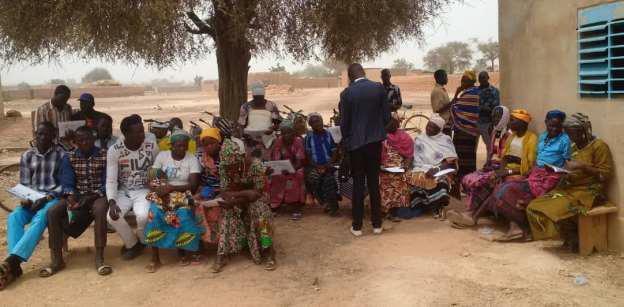
Homemade Fertilizer and Pesticides Work Best
Conservation agriculture practices are opening Haoua’s eyes to a more productive way of farming. The mother of four said she and her husband worked hard in their field and garden plot year after year, with little success.
“If we initially got a decent yield from chemical fertilizers, in time we weren’t able to produce as much as we wanted. The chemicals would often burn our seeds, or get washed away by heavy rains. We used chemical pesticides, too, but they did not actually stop insects from ruining our seeds and plants.”
Haoua attended a training session given by local partner SEL (Showing Everyone Love) on making organic fertilizer by composting, and using traditional pesticides like tobacco or hot peppers mixed with soap. When she returned to the village, she and her husband immediately put the knowledge to work.
“This year, with our homemade fertilizer and pesticides, we finally had a good harvest. The tobacco and hot peppers killed the insects. The compost made a rich medium for the seeds to sprout in, and the improvements to the soil are lasting, unlike the short-term benefits of chemicals. The vegetables taste so much better, and we know they are better for us, too.”
In addition to workshops and training events, SEL also makes a variety of advisors available to communities. Agriculture Household Advisors give advice on a variety of beneficial farming practices. These range from planting in holes to protect plants from washing away in rains, to crop rotation, to intercropping, to covering the soil with organic matter. Revenue Advisors help families, especially women, study the market in their localities, determine what products they could make and sell to generate income, track their expenses, and determine their profits. And Family Advisors encourage people to hold family meetings, obtain IDs, refuse child marriage, and get their children in school.
West Africa Program
Led by World Renew and Local Partner Showing Everybody Love
